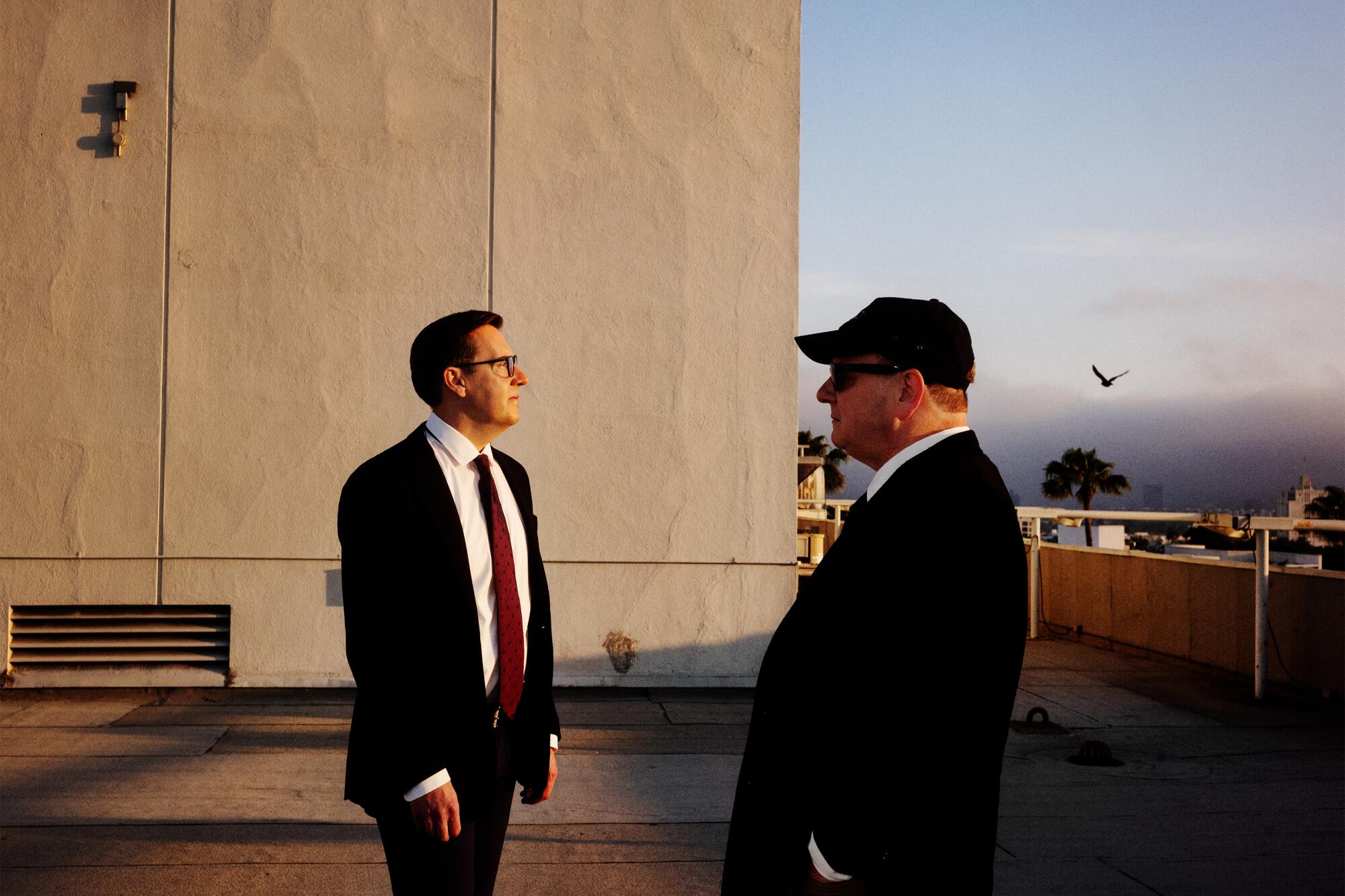
- Share via
Editor’s note: This essay was written and submitted before the ongoing writers’ strike took effect.
Wednesday would definitely not approve. Why would anyone attempt to pander to the voting masses with self-aggrandizing puff pieces? She would no doubt humiliate us with one of her trademark unblinking death-stares and finish us with a lethal quip. Maybe that quality of unflinching, self-determined honesty is what makes her so universally appealing. Wednesday is a truth teller. It’s ironic that in an age of authenticity, most of us are too afraid to say what’s really percolating in our heads. Wednesday has no such qualms. She is relentlessly authentic. Also fearless. Provocative. Borderline psychotic. In the pantheon of pop culture characters — she is totally unique.
As writers, we’ve always been drawn to iconic characters. We spent seven years navigating Clark Kent’s journey from sheltered teen to Superman in “Smallville.” Similarly, with “Wednesday” we wanted to explore a chapter of her life that had not been charted. We’ve never considered the show as a reboot or a remake. It’s a character study. It began with a simple question: “What would it be like to hang out with teenage Wednesday Addams?” From that notion a slew of even more intriguing questions flowed — “Would Wednesday have friends?” “Could she be happy?” “Would she ever find love?” Even now, we still don’t know the answers. She is a multitude of complexities, talents and flaws.
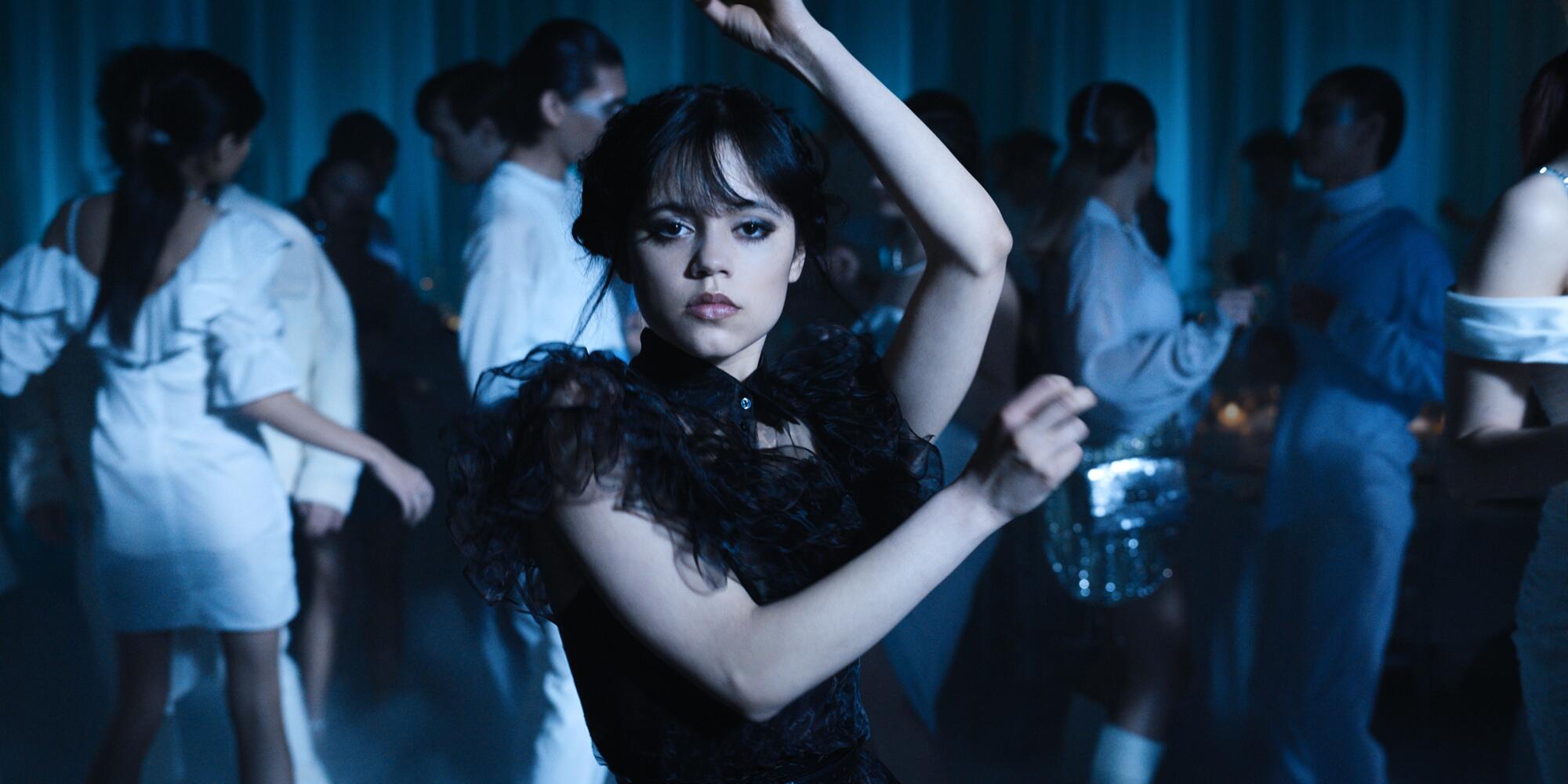
The show owes a debt to the illustrious writer Paul Rudnick, who worked on the 1990s movies and perfected Wednesday’s deliciously dark verbal wit, and Christina Ricci, whose meme-worthy performance elevated the role to iconic status. When Tim Burton first climbed aboard this kooky train with us, we collectively knew that the hunt for our Wednesday was a “do or die” mission.
Fortunately, the casting gods were smiling on us when we met Jenna Ortega. From the moment she stepped on set, she inhabited the role. It was like watching a supernatural possession. Quite apart from letter-perfect memorization of reams of dialogue, her comedic timing was innate, the planning meticulous and the performance no holds barred.
Making the first season of any show is the industry equivalent of running 15 marathons with your hands tied behind your back and blindfolded. It’s a creative gauntlet, that challenges you physically, emotionally and psychologically. “Wednesday” was no exception. The original plan was to shoot in Toronto, a very logical choice until we discovered the studio stages were tiny and our Canadian budget would stretch only far enough to build one room and a hallway. We scoured the world for a new home. UK. Ireland. Australia. New Zealand. Could Mexico work? Romania was on nobody’s radar, but this gem of an Eastern European country was tailor-made. In retrospect, it feels entirely appropriate that the Wednesday Addams show should shoot in the murderous stamping ground of Vlad the Impaler, a.k.a. Dracula.
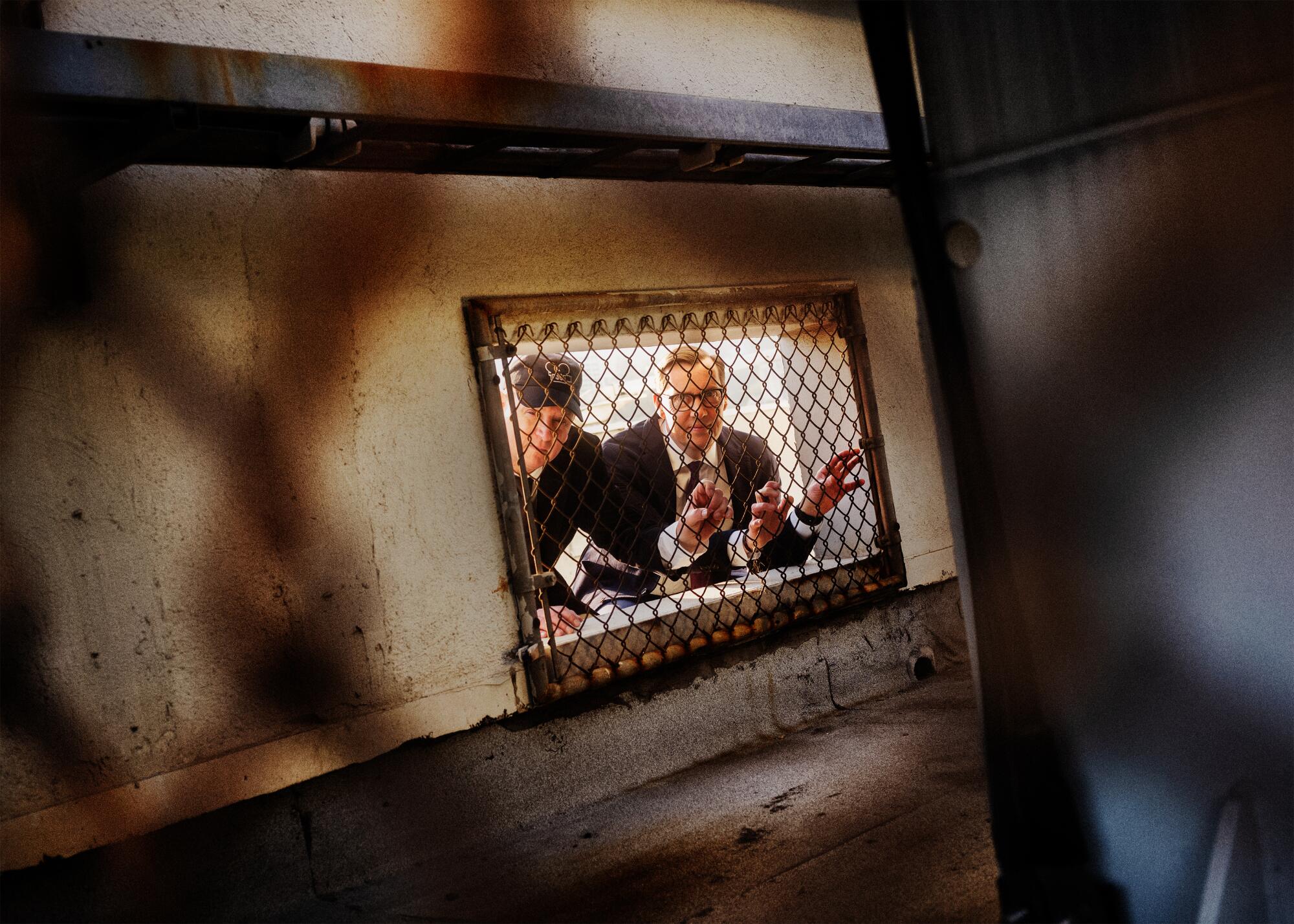
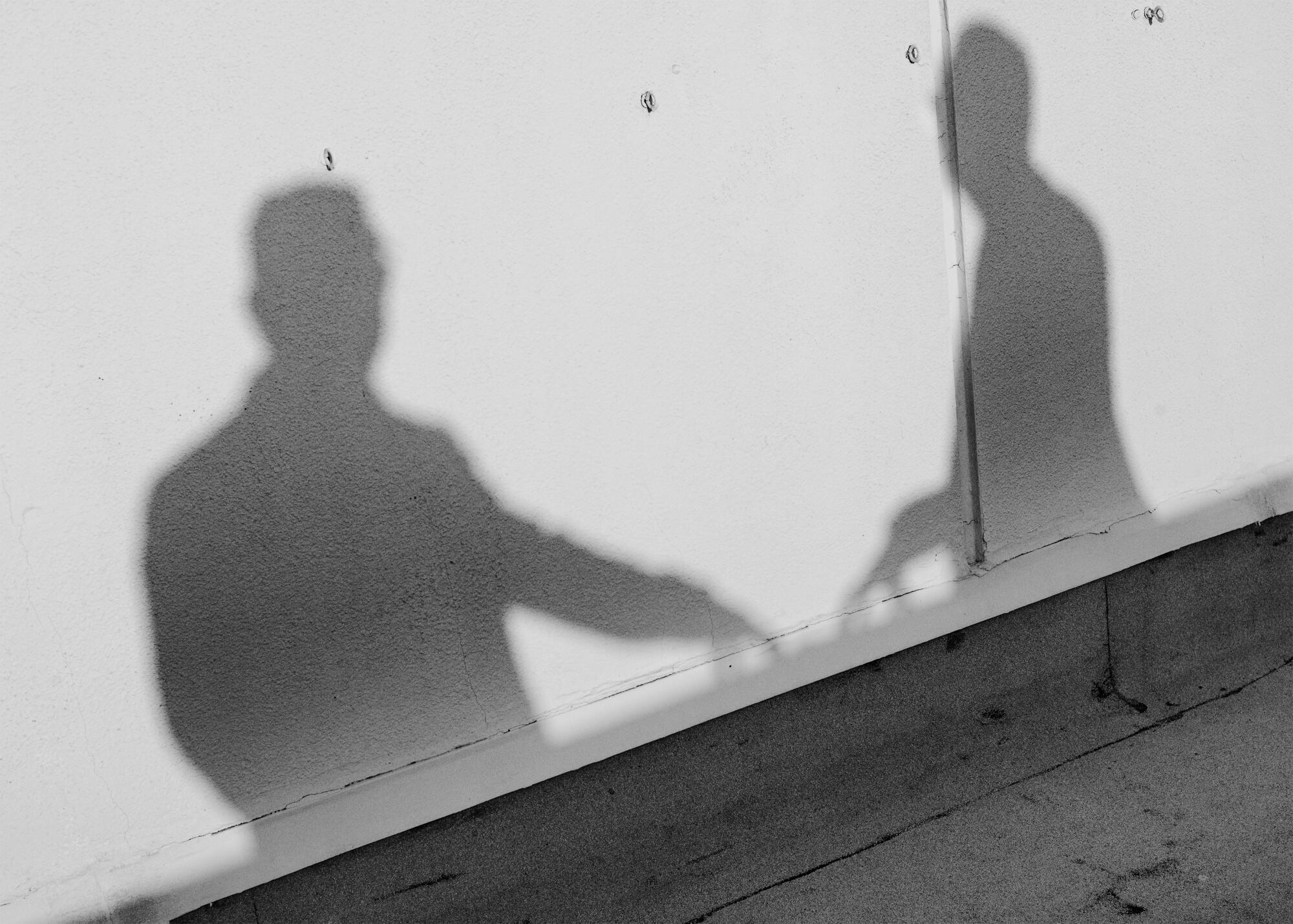
Our home base was Bucharest. It offered us vast studio space, a sprawling backlot, and fall landscapes of staggering beauty. A half-forgotten villa tucked into a sleepy valley in the Carpathian Mountains became Nevermore, the boarding school that Wednesday attends. Like Tim, we are old school and have an aversion to CG sets and volume stages, so we built the entire main street of our Vermont town, Jericho, on a muddy field next to the studio.
Making anything during COVID was hard, and then you throw in the language barrier and a diligent crew of Eastern European medics who took great pride in stabbing swab-sticks so far up your nose it felt like they were performing lobotomies. The tragic war in neighboring Ukraine also rocked us. Friends, family and panicked executives reacted to this news like distant relatives calling after an earthquake shakes San Francisco and you’re in bed in L.A.
After “Wednesday” launched, one of the most gratifying consequences was hearing how much the show had resonated with families. It became an unexpected multi-generational hit. A show that people could watch and enjoy together — a novel idea in the streaming age. There was one group that embraced the show with an unprecedented passionate fervor: young girls. We began hearing that music schools around the world had been inundated with girls wanting to take up the cello and fencing schools now had waiting lists full of wannabe Wednesdays.
As the fathers of daughters, we have four between us, this was the reaction we had dreamed about but never anticipated becoming a reality. How would Wednesday feel about all the hoopla? She’d be nauseated. But the fact that this show has connected in such a meaningful way with young girls is something she would definitely get behind. She’d never admit it, but it might even elicit the rarest of reactions. A smile.
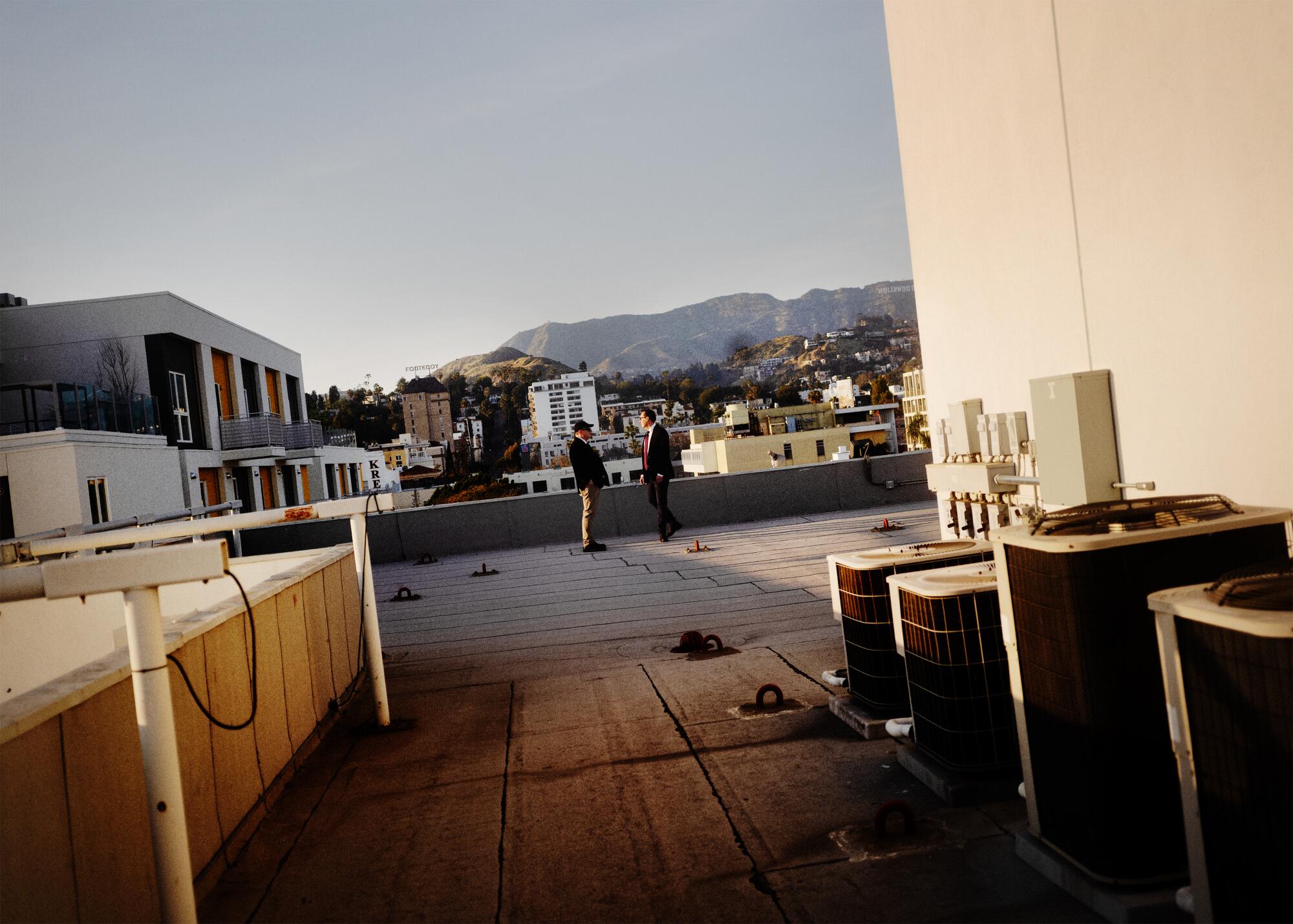
More to Read
From the Oscars to the Emmys.
Get the Envelope newsletter for exclusive awards season coverage, behind-the-scenes stories from the Envelope podcast and columnist Glenn Whipp’s must-read analysis.
You may occasionally receive promotional content from the Los Angeles Times.






